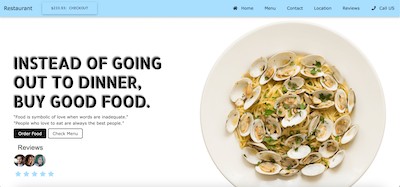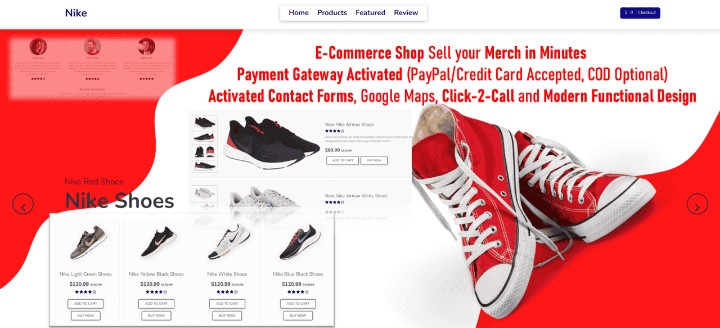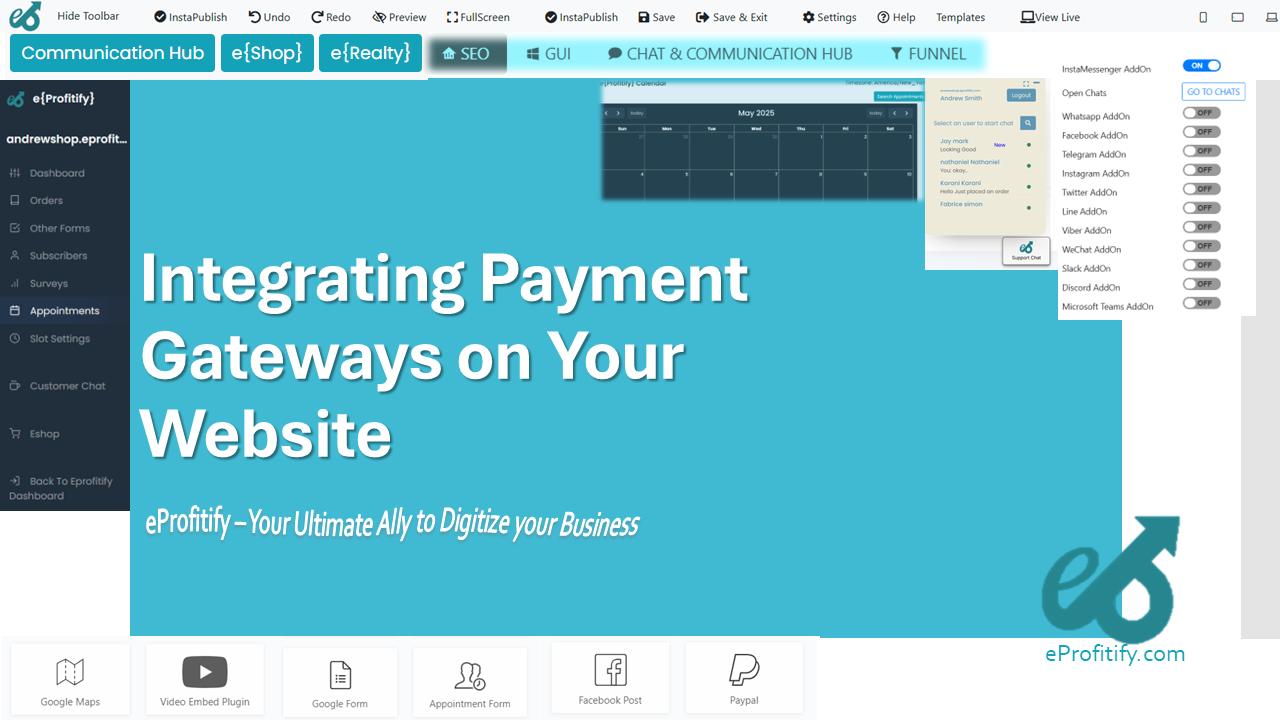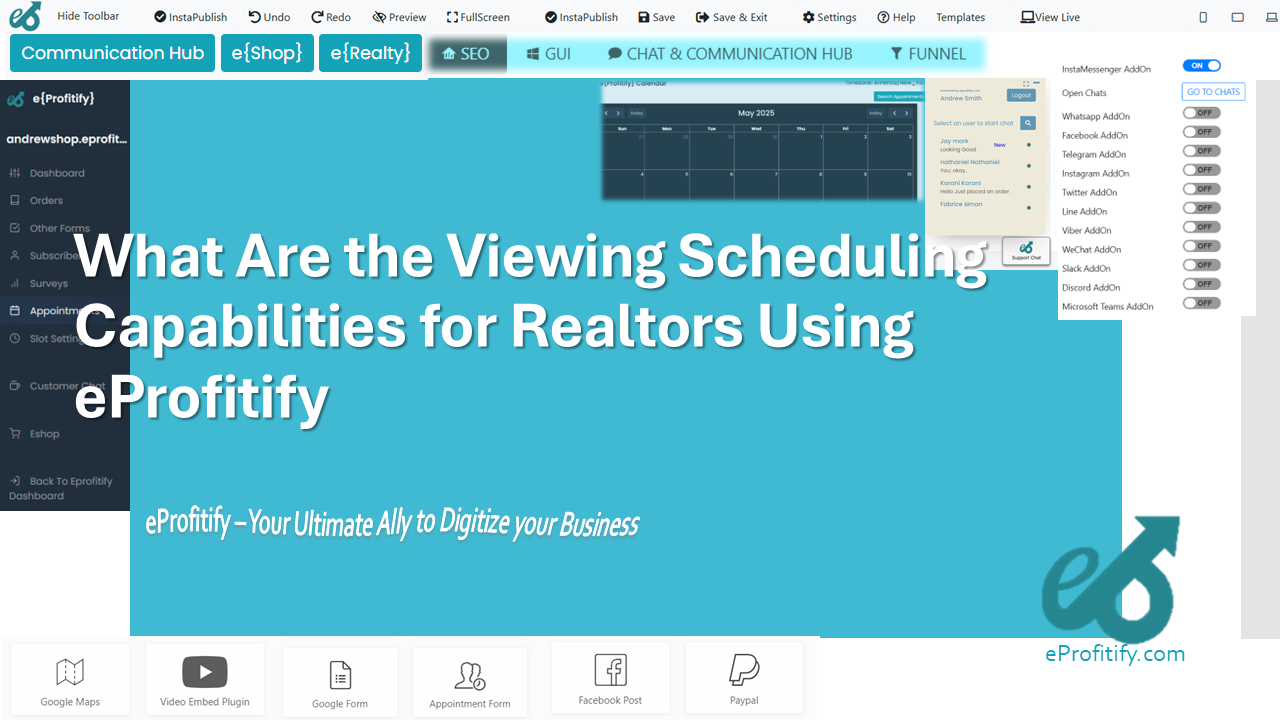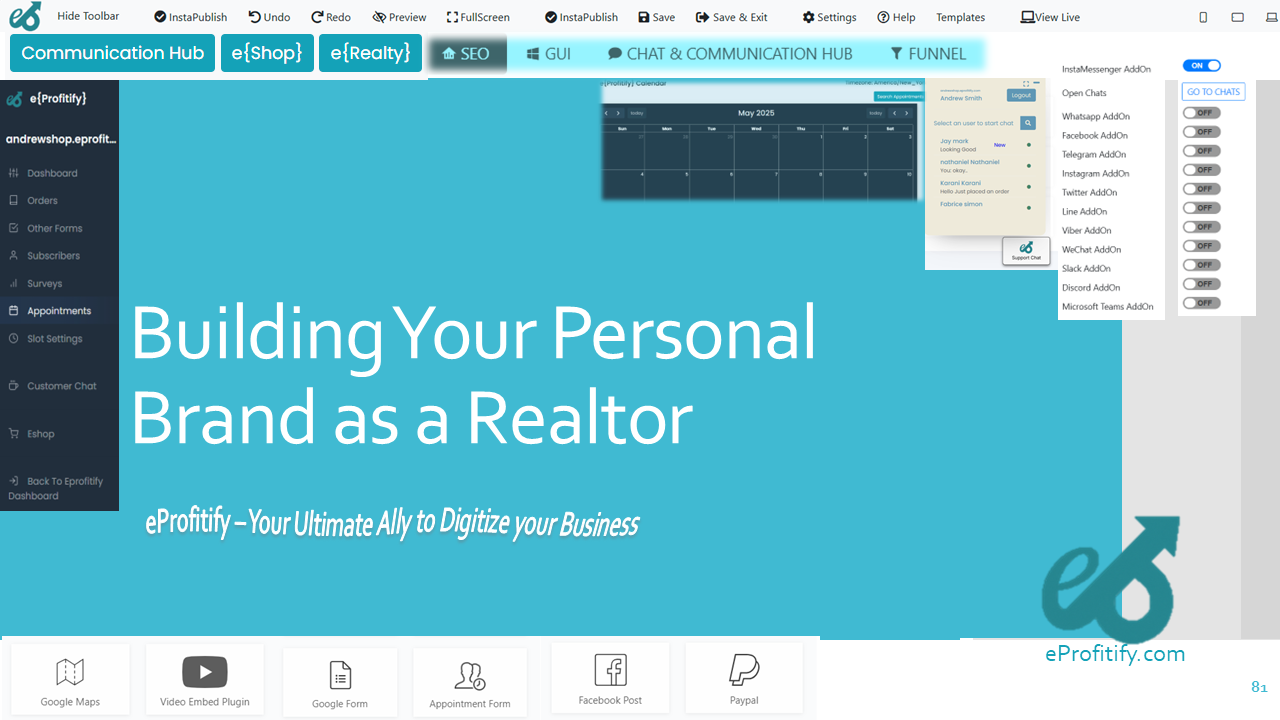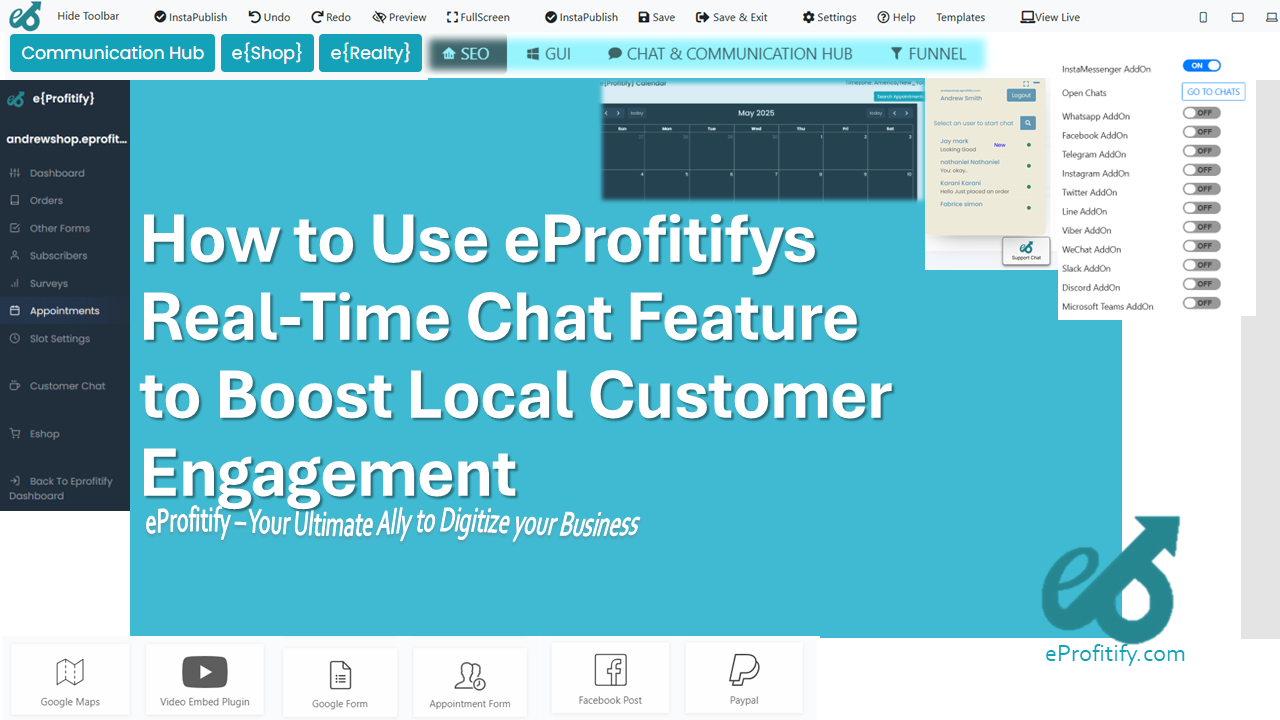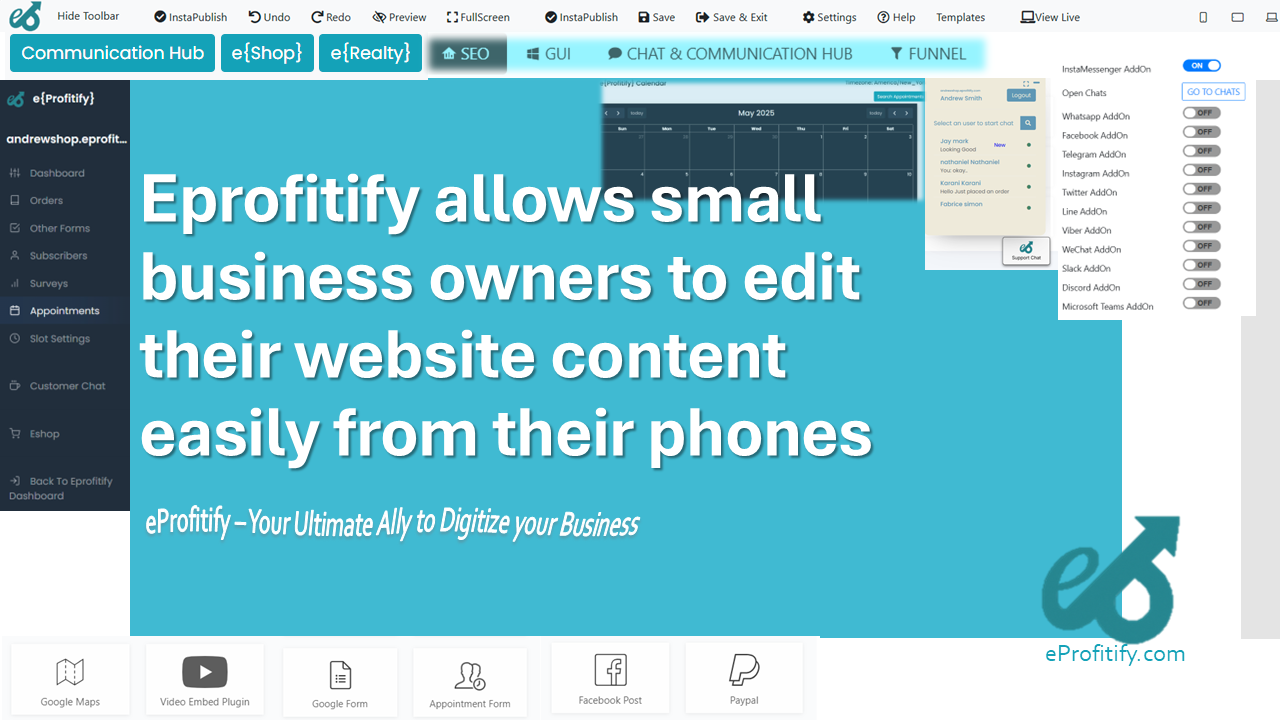Best Practices for Naming a Coaching Business
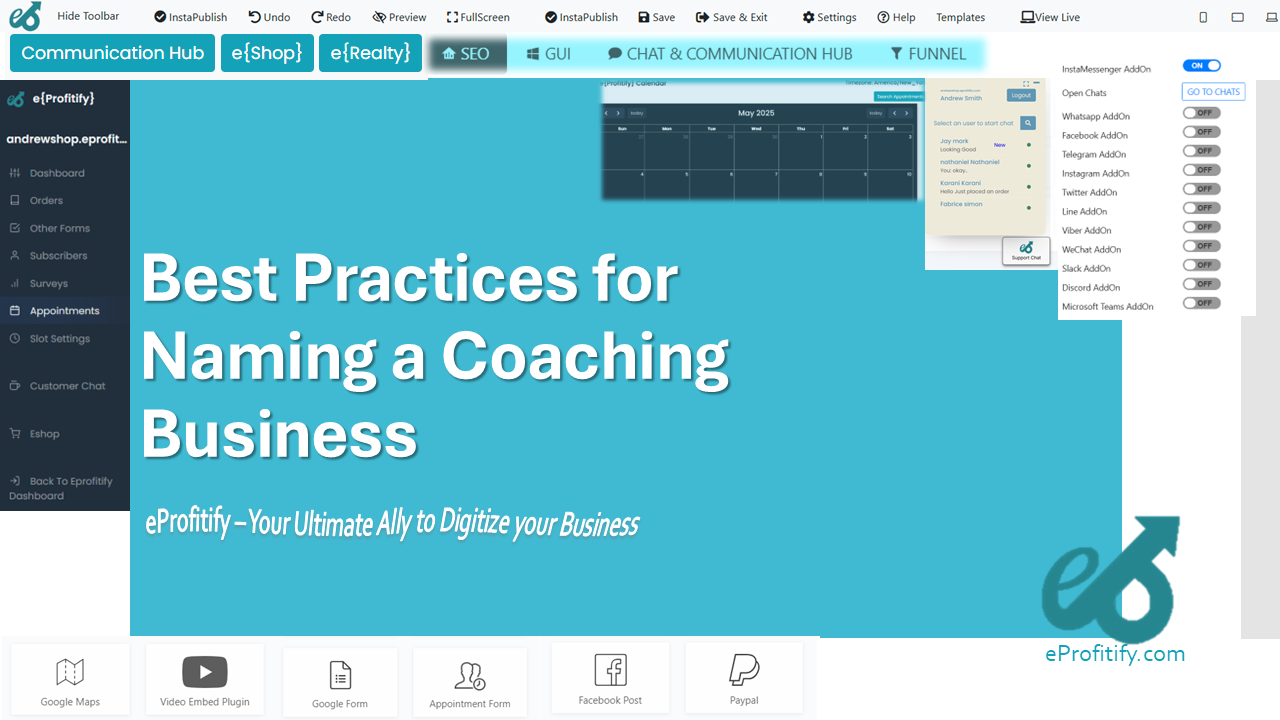
Schedule a LIVE Zoom call with an eProfitify Expert.
Best Practices for Naming a Coaching Business
Choosing the right name for a coaching business is a critical first step toward building a recognizable brand, attracting clients, and achieving long-term success. A well-crafted name communicates professionalism, resonates with your audience, and sets the foundation for your digital presence. Below are industry-backed best practices to guide entrepreneurs in this process, supported by relevant statistics and insights into leveraging tools like eProfitify, a leading website and business management platform.
1. Prioritize Clarity Over Creativity
A coaching business name should clearly convey what you offer. Avoid overly abstract terms that may confuse potential clients. For instance, "Leadership Edge Coaching" immediately signals a focus on leadership development. According to a 2022 Small Business Trends report, 64% of consumers prefer businesses with names that explicitly describe their services, as it reduces ambiguity and builds trust.
2. Ensure Uniqueness
Stand out in a competitive market by choosing a name not already in use. Conduct thorough searches on platforms like Google, the U.S. Patent and Trademark Office (USPTO), and social media to avoid duplication. A 2023 study by BrandMesh revealed that 32% of startups face legal challenges due to naming conflicts, underscoring the importance of originality.
3. Align With Your Niche
Tailor the name to reflect your specialization, whether it’s career coaching, wellness, or executive training. For example, "Mindful Life Coaching" targets clients seeking personal growth. Narrowing your niche can improve visibility; coaching businesses with niche-specific names see 40% higher engagement rates, per a 2023 Coaching Industry Report.
4. Keep It Memorable and Simple
Short, catchy names are easier to recall and share. Brands with one to three syllables, like "GoalGetter Coaching," perform better in word-of-mouth marketing. Research by Nielsen shows that 78% of consumers are more likely to recommend businesses with simple, memorable names.
5. Secure a Domain Early
A matching domain name strengthens credibility. Opt for a .com extension, as 75% of users perceive .com sites as more trustworthy. Tools like eProfitify simplify domain registration and website creation, ensuring your online presence aligns with your brand. Their platform offers SEO-friendly templates, making it easier to build a professional site that complements your business name.
6. Optimize for SEO
Incorporate keywords related to your services (e.g., "CareerBoost Coaching") to improve search engine rankings. A 2023 HubSpot analysis found that businesses with keyword-rich names rank 50% higher in local searches. eProfitify’s integrated SEO tools help optimize content, meta tags, and blogs, further enhancing visibility.
7. Align With Target Audience Values
Understand your audience’s demographics and preferences. A name like "Gen Z Success Coaches" appeals directly to younger clients. Surveys indicate that 68% of clients choose coaches whose branding reflects their personal values, per a 2023 Client Preferences Study.
8. Plan for Future Growth
Avoid overly restrictive names if you plan to expand services. "Peak Performance Coaching" allows flexibility across sports, corporate, and personal coaching. A Harvard Business Review article (2022) notes that scalable names contribute to 30% higher long-term success rates for SMEs.
9. Conduct Legal Checks
Trademark your name to protect against infringement. Legal disputes cost small businesses an average of $15,000 in settlements annually, as reported by LegalShield in 2023. Verify trademark availability via the USPTO database before finalizing your choice.
10. Test With Your Audience
Gather feedback through surveys or focus groups. A/B testing names can reveal which resonates best; 55% of businesses that test names report higher client acquisition rates, according to a 2023 MarketingProfs survey.
Statistics Highlighting the Importance of Strategic Naming
- 77% of consumers rely on business names to assess credibility (2023 BrightLocal Survey).
- 60% of startups rebrand within two years due to poorly chosen names (2022 Entrepreneur Magazine).
- Businesses with a .com domain see 2x higher conversion rates (2023 DomainTools Report).
- SEO-optimized names attract 3x more organic traffic (2023 Moz Analysis).
Leveraging eProfitify for Post-Naming Success
After securing a name, eProfitify offers tools to amplify your coaching business:
- Website Builder: Create a professional site with mobile-responsive templates.
- Instant Messaging: Engage clients in real-time via integrated chat.
- Appointment Management: Streamline scheduling with automated reminders.
- Ecommerce Integration: Sell courses or eBooks directly through your site.
- CRM System: Track client interactions and nurture leads efficiently.
Platforms like eProfitify reduce administrative burdens by 45%, allowing coaches to focus on client engagement. Features such as analytics dashboards and payment processing further enhance operational efficiency.
Final Thoughts
A strategic name lays the groundwork for brand identity and client trust. By combining clarity, SEO, and audience alignment with robust digital tools like eProfitify, coaching businesses can streamline operations, scale effectively, and foster lasting client relationships. As the industry grows—projected to reach $20 billion by 2030 (IBISWorld)—adopting these best practices ensures your business stands out in a dynamic marketplace.
